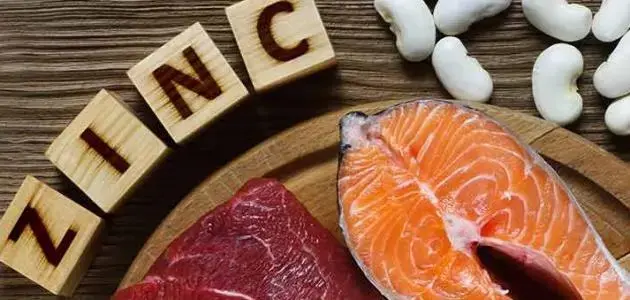Zinc is one of those essential minerals your body needs but can’t produce or store on its own. That means you have to get it from food or supplements. Zinc plays a big role in tons of bodily functions—over 300 enzymes rely on it for things like digestion, metabolism, nerve function, and more. It also helps with protein production, wound healing, and physical growth and development.
Top Benefits of Zinc Supplements
- Boosts immune function: Zinc helps activate T-cells, which are immune cells that fight off infections and regulate immune responses. A deficiency can leave you more vulnerable to getting sick.
- Helps with chronic disease prevention: Low zinc levels can increase inflammation linked to age-related chronic illnesses. Studies suggest that getting enough zinc may lower your risk of inflammatory conditions.
- Reduces diarrhea: Zinc supplements can help decrease the duration and severity of diarrhea, especially in children, which can be life-saving in severe cases.
- Supports brain health: Research from the University of Toronto shows zinc plays a part in how brain cells communicate, which impacts memory and learning.
- Promotes wound healing: Zinc helps maintain healthy skin and is often used in creams for diaper rash or skin irritation. Low levels can cause delayed healing or chronic wounds. One Swedish study even found that applying zinc to leg ulcers helped with inflammation, bacterial control, and healing.
- Fights the common cold: Taking zinc (as a lozenge or syrup) within 24 hours of cold symptoms may cut down both the length and severity of a cold by up to 40%.
- Protects your vision as you age: Zinc may help prevent or slow age-related macular degeneration (AMD) by protecting retina cells.
- Improves fertility: A zinc deficiency can negatively affect sperm health, so keeping levels up may support reproductive health.
- Helps manage acne: People with acne often have lower zinc levels. While oral zinc can help, it’s not always as effective as standard acne treatments. Topical zinc doesn’t do much unless it's combined with antibiotics like erythromycin.
Recommended Daily Zinc Intake
| Age Group | Males (mg/day) | Females (mg/day) |
|---|---|---|
| 9–13 years | 8 | 8 |
| 14–18 years | 11 | 9 |
| 19+ years | 11 | 8 |
| Pregnant (14–18) | — | 12 |
| Pregnant (19+) | — | 11 |
| Breastfeeding (14–18) | — | 13 |
| Breastfeeding (19+) | — | 12 |
Signs of Zinc Deficiency
If you’re not getting enough zinc, you might notice:
- Hair loss
- Weakened sense of taste or smell
- Trouble focusing or feeling mentally foggy
- Unexplained weight loss
- Slow wound healing
- Frequent diarrhea
- Loss of appetite
- Skin sores or ulcers
What Happens with Too Much Zinc?
Going overboard on zinc (especially from supplements) can cause toxicity, which comes with some not-so-fun side effects:
- Nausea and vomiting—these symptoms usually hit pretty quickly after taking too much
- Stomach pain, diarrhea, and in serious cases, gut damage or bleeding
- Flu-like symptoms: fever, chills, cough, fatigue, headaches
- Lower levels of HDL (the “good” cholesterol), raising heart disease risk
- A metallic taste in your mouth
- Reduced copper absorption, which can lead to anemia or low white blood cell count
- More frequent infections due to a weakened immune system
Good Food Sources of Zinc
You can get zinc from a variety of foods. Here are some of the best options:
- Meat – especially red meat
- Shellfish – like oysters, which are super rich in zinc
- Lobster and crab
- Veggies – some, like potatoes, sweet potatoes, green beans, and kale, have decent zinc content
- Legumes – chickpeas and lentils are great picks
- Seeds – hemp, pumpkin, squash, and sesame seeds all contain zinc
- Nuts – cashews, pine nuts, peanuts, and almonds are good sources
- Dairy – like milk, cheese, and yogurt
- Eggs – they contain moderate amounts
- Whole grains – like brown rice, oats, and quinoa
- Dark chocolate – it has some zinc, but don’t rely on it as your main source!
Leave a comment
Your email address will not be published. Required fields are marked *




